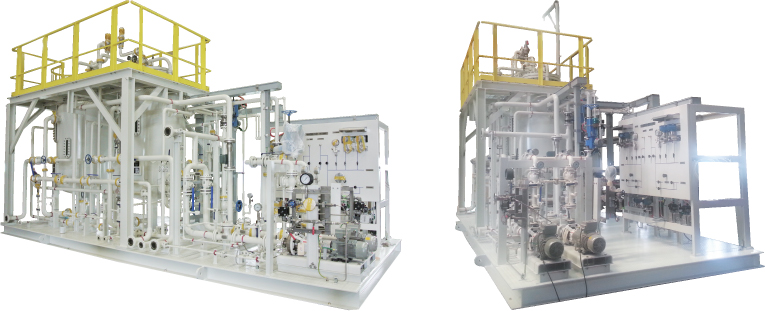KOSMO E&T

Remineralization Package

- The purpose of the remineralization package is to convert the distillate into potable water for public consumption.
- International standards for drinking water have been issued by the World Health Organization in Geneva specifying the “highest desirable” and “maximum acceptable” levels for individual ionic species, and total dissolved solids.
- The mineral salts added render the water palatable to the consumer. However, the water tends to be high in sodium chloride and low in calcium hardness/alkalinity and, therefore, is very corrosive.
- The corrosive nature of distillate blended by adding mineral salts can be curtailed by the addition of a small dose of alkali to elevate the pH. Practical experience has shown this technique to be only partly effective and corrosive attack on water distribution systems continues products gives the water a generally unaccepted appearance, and staining of laundry and of sanitary fittings can provide just cause for complaints.
- The calcium bicarbonate can be produced by blending the distillate with ground water, containing sufficient calcium in combination with a chemical mixture forming sodium bicarbonate (for example; sodium carbonate and acid, sodium hydroxide and carbon dioxide, or directly with sodium bicarbonate). The high volume of chemicals required and the cost of supply and handling, make these process concepts unattractive, and the need to utilize ground water as a source of calcium has significant limitations in many instances.
- The limestone filtration concept offers major advantages in terms of low operating costs, low maintenance and, fundamentally, a plant which is largely self-regulating and simple to control.


 ENGLISH
ENGLISH  CHINESE
CHINESE JAPANESE
JAPANESE SPAINISH
SPAINISH KOREAN
KOREAN VIETNAMESE
VIETNAMESE





